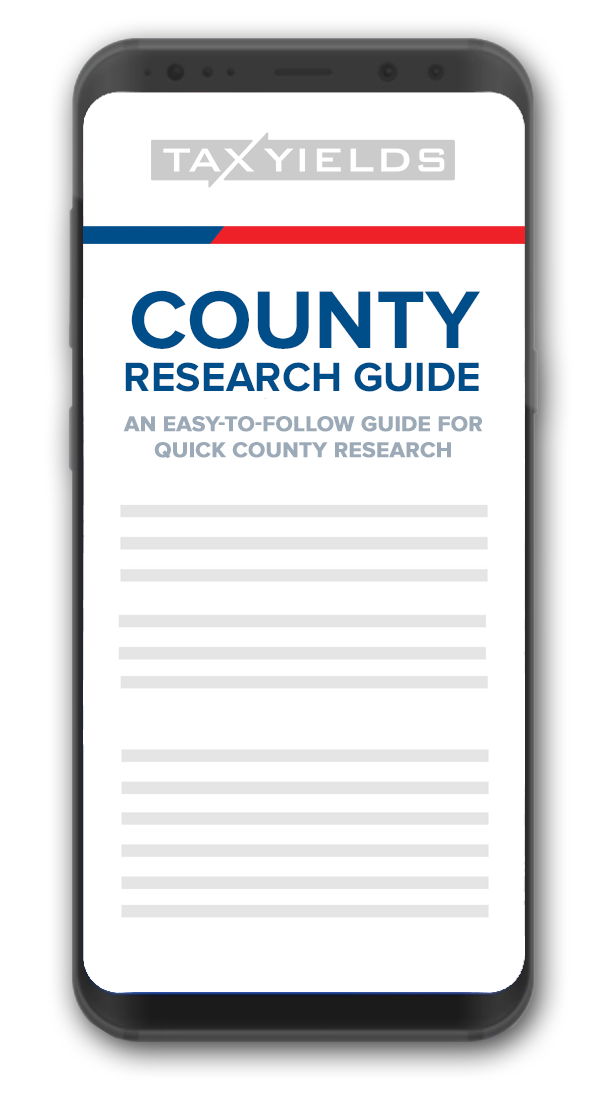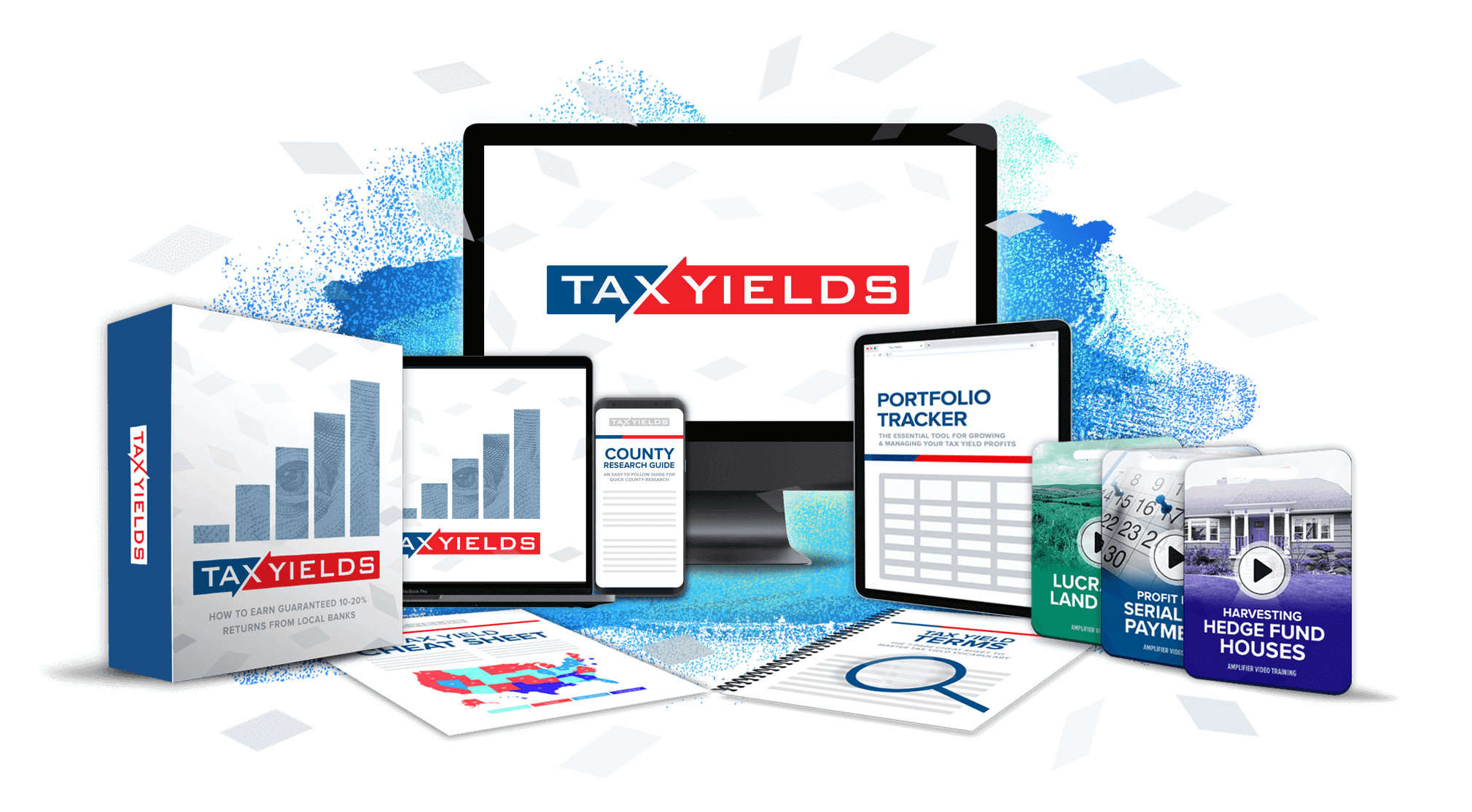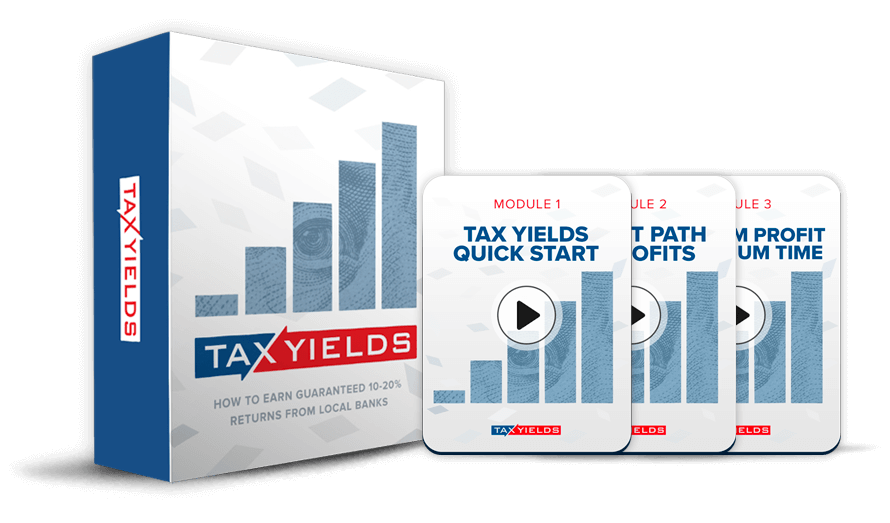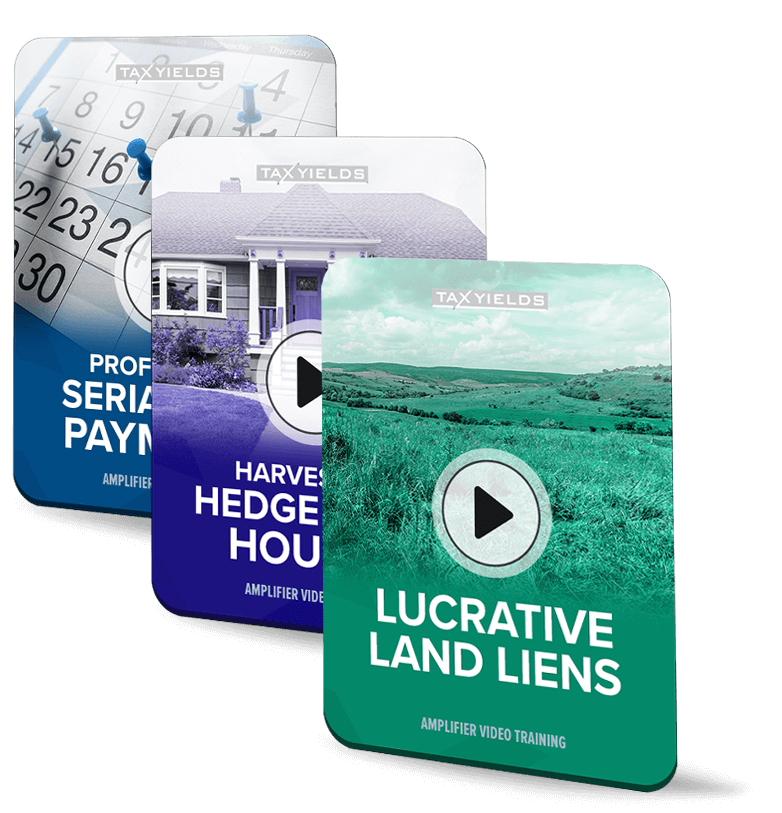Warning: This Special Offer Is Coming Down Soon...
REVEALED: WALL STREET’S HIDDEN RECESSION PROOF INVESTMENT STRATEGY USING...
"Government-Backed Tax Yields"
Discover How to Use This Wall Street Investment Hack to Flood Your Bank Account with Monthly “Tax Yield” Payouts of $885.56… $1,248.33… $2,061.21 or Much More
(Regardless of Your Age, Income, Credit, or Experience)
CUSTOM JAVASCRIPT / HTML
Yours Today for Only $49!
And $49 in 30 Days

"Tax Yields" is The Wall Street Investment Hack to Flood Your Bank Account with Monthly Payouts of $885.56… $1,248.33… $2,061.21 or Much More
With tax yields...
❌ There’s no worry involved like the roller coaster stock market.
❌ No wild price swings that can wipe you out in the blink of an eye like the volatile crypto markets.
❌ And we’re not talking 0%-4% returns that get outpaced by inflation.
Just safe, predictable double-digit yields backed by the government.
You know your minimum return going in.
And the only surprises are to the upside as you’ll soon see…
Wall Street banks love tax yields because they provide safe returns of 12%, 15%, 20%...
And even 300% or much more in some cases.
Big banks like JP Morgan Chase, Wells Fargo, and Bank of America have quietly bought hundreds of thousands of these lucrative investments.
In fact, this investment is so profitable that these giant Wall Street banks go to great lengths to cover up their activities.
Which is why you may not have heard of this before.
It’s important to note that everything these big banks are doing is perfectly legal.
Including doing their best to hide their highly profitable tax yield investing activities from the public.
Yet the opportunity is so massive that there’s plenty of room for ordinary folks like us…
To generate life-changing chunks of cash too.
So exactly what are governments backing tax yields? And how can you get started?
Let me explain what one of the industry’s most respected sources calls…
“The Holy Grail of Real Estate Investing”
I’m talking about a special niche inside the massive real estate investing industry of tax lien certificates.
Most people already know real estate has created more millionaires than all other investments combined.
Yet few people outside of Wall Street understand what could be the most lucrative, and hassle-free real estate investment of all:
“Tax Yields”
This simple investment strategy eliminates all of the hassles of traditional real estate investing.
It’s the sweet spot where you can make the most money with the least effort.
❌ There’s no hunting down foreclosures.
❌ No negotiating short sales with banks.
❌ No flooding neighborhoods with letters and postcards to locate motivated sellers.
❌ Investing in tax yields doesn’t involve spending tens of thousands of dollars fixing up houses… then waiting months before they sell and close so you can collect your check.
❌ You won’t have to deal with termites that destroy the property.
❌ Or tenants who don’t pay their rent on time. But do call you every time the toilet won’t flush.
With tax yields, you are simply loaning the government money to cover someone’s unpaid property taxes.
In exchange, the government pays you a double-digit rate of return.
Even better, these are short-term loans.
So you don’t have to wait 5, 10, even 20 years or more to cash your profit checks like you do in traditional real estate investing or with government bonds.
You can collect your profits in as little as 30 days or less.
And then roll those profits into more tax yields to snowball your money into something bigger and bigger.
Returns from the government, backed by real estate.
It doesn’t get much safer than that.
And as you’ll see, it’s as simple as point, click, profit... repeat.
The safety and simplicity of tax yield investing is why Wall Street loves it.
And that’s why YOU will love it too.
So by now, you may be wondering…
What Government Are You Loaning Money To?
Point. Click. Profit. Repeat.
All you need to do today is take the first baby step…
By taking advantage of something I created to help you succeed…
And to make your investing experience easier and more profitable.
It’s a simple plan I’ve created and perfected over my more than 15 years in this wonderful business.
I call it the Tax Yields profit system.
My students consider it their shortcut to success.
This is over 15 years of navigating the lucrative world of tax yields.
Overcoming all the challenges. Figuring out what works and what doesn’t.
Distilled down to the most important basics — in 3 easy to understand modules.
Including...
- A simple step-by-step process for buying your first tax yield investment in 8 days or less. (even if you only have a couple hundreds dollars in the bank)
-
All the common mistakes beginners make so you’ll know how to avoid them.
-
The best places to look for tax yield investments... The ones with the highest returns and the quickest pay back periods.
-
Which cities and counties to avoid... This will save you from wasting your time searching for a needle in a haystack.
-
The simplest type of tax yield investment. This is where I recommend you get started.
I’ll also reveal all of my success secrets, including:
As you can see, no stone is left unturned.
After going through this wealth of information, you’ll have everything you need to get started immediately.
But that's not all...
I'm Also Including...
BONUS #1: Your Tax Yield Terminology Cheat Sheet
To walk the walk as a successful Tax Yields investor, you’ve gotta be able to talk the talk.
That’s why we’re providing you with a cheat sheet of all the terms used to sound like a pro.
This 7-pager is an instant confidence boost giving you the credibility you need to win big.
This is valued at $49.


BONUS #2: Your State-by-State Resource Guide
When it comes to tax yields, every state is different and has its own way of dealing with these.
This makes it really difficult to get started if you’re all on your own.
Lucky for you, I’ve already done all the hard work in researching every state in the US.
…and I’m handing this incredible resource guide to you to fast forward your success.
You don’t have to spend the countless hours that it took me and my team to figure out the best states to focus on and where to avoid like the plague.
With this simple guide, you’ll be able to go straight to the easy money.
This is a $199 value.
As you can see, I’ve packed this program with everything you need to get started right away.
Depending on how fast you want to go through the training…
You can be on your way to your first payout in a matter of weeks.
Here's Everything You're Getting Today...

- The 3-Module Tax Yields Profit System (a $997 Value)
-
Terminology Cheat Sheet ($49 Value)
-
State-by-State Research Guide ($199 Value)
-
Profit Tracker Spreadsheet ($295 Value)
-
Amplifier Trainings ($350 Value)
Total Value: OVER $1,890
Yours Today for Only $49!
And $49 in 30 Days

Click the "Add To Cart" Button Now For This Limited-Time Offer...
Words From Your Fellow Students

"ROI of 20%"
I’m proud to say I’m finalizing my first investment with a monthly cash flow of $620 and ROI of 20%.
— Jimmy McDougal of Arlington, TX

"Tax Yields Worth Over $5,000 Were Paid... Just Started My Sixth"
I just found out that five of my tax yields worth over $5,000 were paid. Today I started the process on a sixth which will be worth another $2800.
— Linda Hillier, Mentor, OH

"Our First Tax Yield in 8 Days!"
“Knowledge, diligence and process are critical – and as a consequence of making good selections, we had our first tax yield within 8 days! We know this is just the beginning and we are so grateful…”
— Larry Jordan, Kissimmee, FL

"Received 2 Profit Checks"
My wife and I started investing in tax yields last year. We were a little doubtful. But you made it a whole lot easier by walking us through the process step-by-step.
Not leaving out any details it was as though you were right here with us as we made 2 tax yield purchases. And then received 2 profit checks.
— Rick Gonzalez, Pasadena, CA

"$3,512.14 Profit. Pretty Darn Great!"
I have been paid for all the tax yield investments I made… And collected a profit of $3,512.14. Pretty darn great!
— Leisha Graham, Dunwoody, GA

"Within weeks I made 7 tax yield investments…"
— Vicky Dolan, Naperville, IL

"5 Tax Yield Investments Already"
I started knowing nothing… I’ve already made more than 5 tax yield investments during this training course. I’ve already started my path to success and it is because of your guidance.
— Pete Brown, Denver, CO

"My First Tax Yield Investment!!!"
“Yay, I made my first tax yield investment!!! At first, I was totally skeptical of this… But from the first day of hearing this to 2 weeks later making my first investment, I got to say I was dead wrong.”
— Mary Donaldson, Tempe, AZ

"THANK YOU!"
I have tried other programs before and never got anywhere. Thanks to you, I made my first tax yield investment two weeks ago. Thank you.
— Laura Davidson
Click the "Add To Cart" Button Now
For Instant Access to This Limited-Time Offer...

© Awesome REI, LLC
EARNINGS DISCLAIMER
Earning and Income statements made by our company and its customers are supplied directly from the company or customer. Any and all claims or representations as to income earnings made on our web sites or in our materials or information are not to be considered as average earnings. There is no guarantee that you will make these levels of income — in fact, most people do not — and you accept the risk that the earnings and income statements differ by individual. As with any business, your results may vary, and will be based on your individual capacity, business experience, expertise, and level of desire. The testimonials and examples used are not intended to represent or guarantee that anyone will achieve the same or similar results. Testimonials are not representative.



